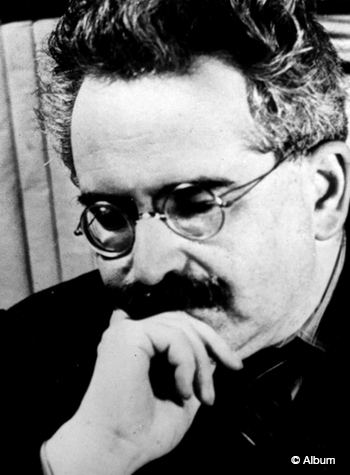Walter Benjamin
1892 - 1940
Walter Benjamin (Berlin, 1892 – Portbou, 1940) was a German philosopher, literary critic, translator and essayist whose work arouses great interest to this day. As his thought developed, it combined elements from German idealism and Romanticism, historical materialism and Jewish mysticism, allowing him to make relevant contributions to the Marxist theory of aesthetics. In the highly turbulent thirties, Benjamin’s efforts to develop a materialist aesthetic theory served as a strong stimulus both for other members of the Frankfurt school and, for example, the...
Walter Benjamin (Berlin, 1892 – Portbou, 1940) was a German philosopher, literary critic, translator and essayist whose work arouses great interest to this day. As his thought developed, it combined elements from German idealism and Romanticism, historical materialism and Jewish mysticism, allowing him to make relevant contributions to the Marxist theory of aesthetics. In the highly turbulent thirties, Benjamin’s efforts to develop a materialist aesthetic theory served as a strong stimulus both for other members of the Frankfurt school and, for example, the poet and playwright Bertolt Brecht.
Benjamin was forced to flee France to continue his activities after the rise of Nazism in Berlin. Faced with the Nazi advance in France, in 1940 he fled with his sister to Lourdes where Max Horkheimer was to send him a visa to enter the United States. On crossing the French-Spanish border in Portbou he was arrested and subsequently took his own life.

